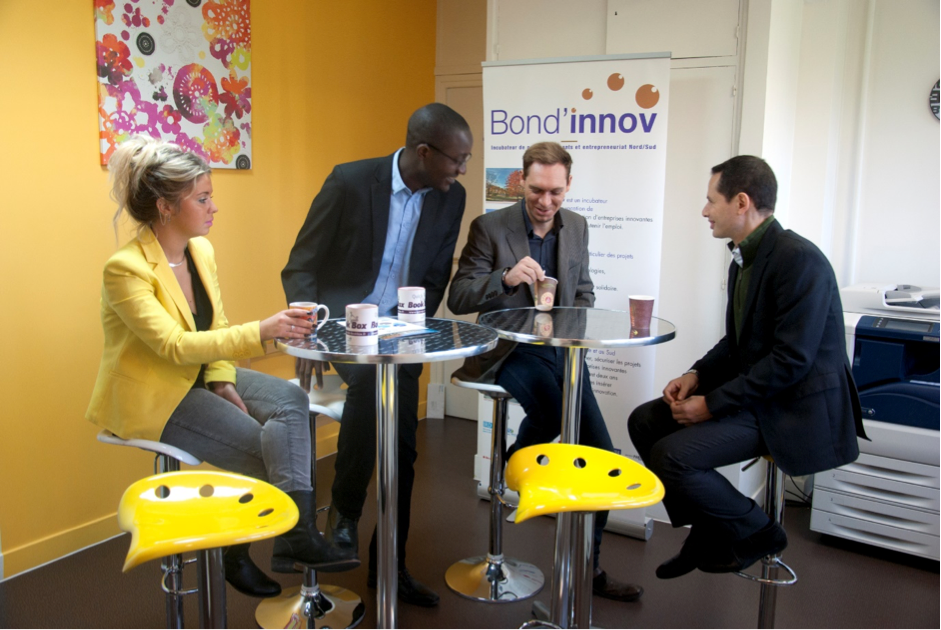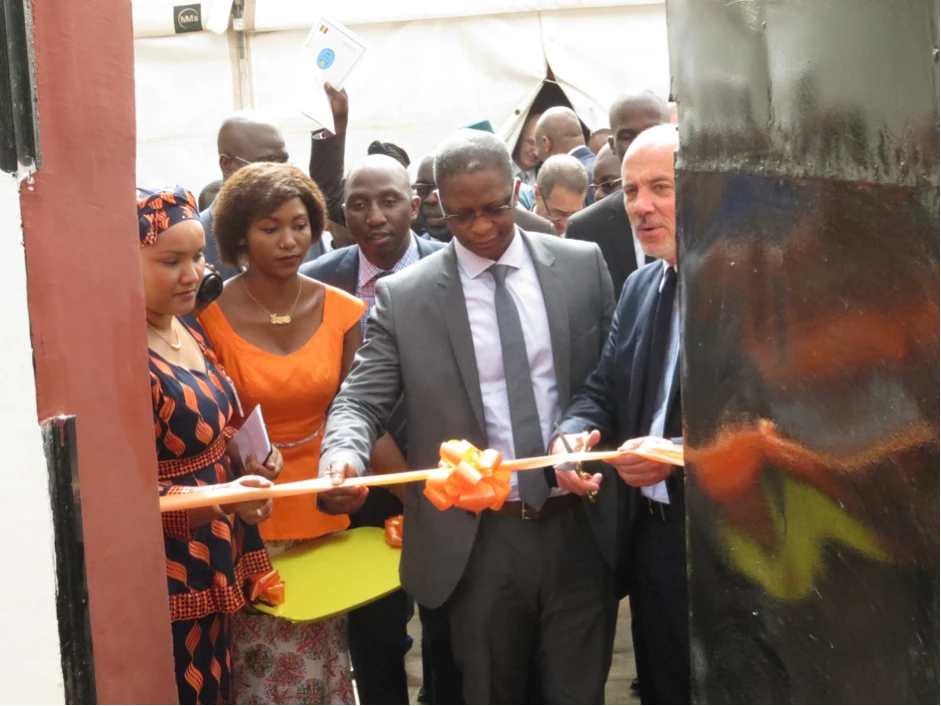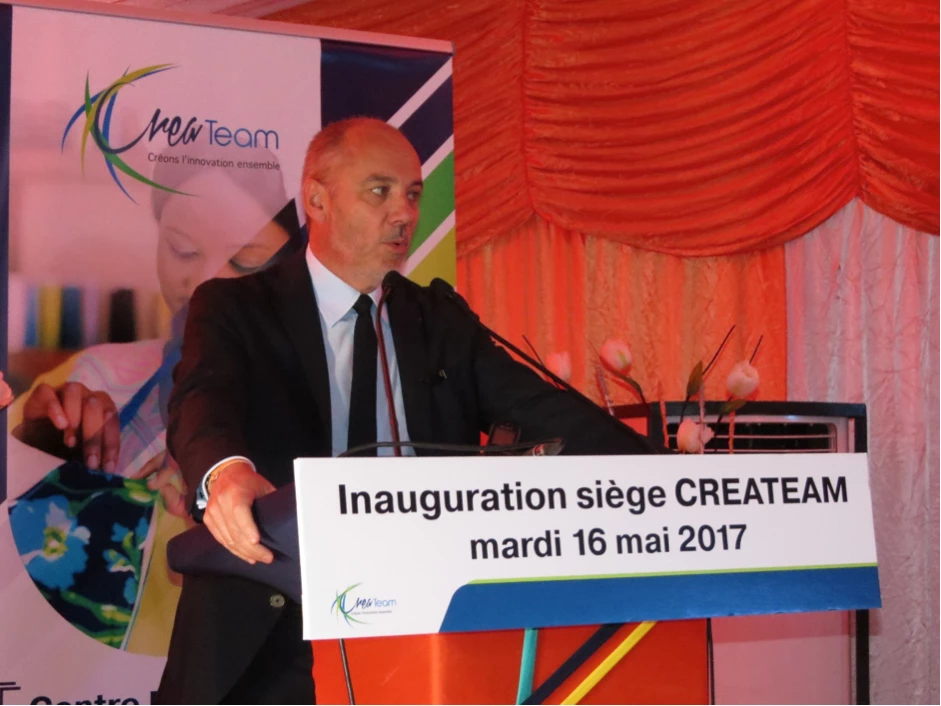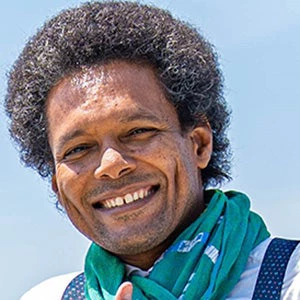
Across francophone Africa, incubators are emerging rapidly to support a new generation of young entrepreneurs. Despite their huge potential, however, incubators are just one of many players in a typical entrepreneurial ecosystem. So it is increasingly important that incubators — in addition to allocating the necessary resources, services and funding to worthy start-ups — provide them with a platform to share and transfer knowledge across the ecosystem, not only with each other but also with the investors, research centers and industry experts upon which their businesses will ultimately depend.
As with Impact Hub Bamako, incubators can be part of broader international franchises, while others are anchored by academic, public or private bodies (or some hybrid of the three) and may already be associated with other incubators. Bond’innov, for example, is an incubator that promotes entrepreneurship cooperation between the global North and the South and that is headquartered in Paris and located on-campus with the Institute for Development Research, a large multidisciplinary research organization operating in more than 50 developing countries.
Another initiative is the Ivorian-based African Club of Entrepreneurs, a pan-African organization of entrepreneurs created under the auspices of the impact investing fund Investisseurs & Partenaires to provide business development, training and advocacy services, as well as networking opportunities. Similarly, INCO, the international hub for green tech start-ups and incubators that builds ties between multiple ecosystems at various stages of development from America to Kenya to Hong Kong, has just launched its SPRINT program with the Paris regional government. SPRINT aims to educate, incubate and accelerate green tech start-ups and businesses in six countries, including Algeria, Côte d’Ivoire, Madagascar, Morocco, Senegal and Tunisia, by 2020.
Connecting organizations to each other can fill knowledge and capacity gaps to cover all stages of development without every incubator feeling the need to diversify to the point of pure generalism. One of the more ambitious of these meta-schemes is the Innovation Africa Program (PAI), a multi-country program which launched a pilot of cross-cutting support services and new mechanisms for seed funding for three incubators, aiming for a total of six within three years. Prioritizing around 20 French-speaking countries in West and Central Africa and financed by the French Agency for Development, along with a consortium of major public and private donors including Orange and the International Organization for Francophonie, the program seeks to strengthen the capacity of francophone Africa’s incubators and other supporting infrastructure.
The program will prototype tools and services with three pilot incubators — Bond’innov, CTIC Dakar and CIPMEN — that could serve as models for African incubation in the future. As with SahelInnov, the Innovation Africa Program will launch Afric’innov as an accredited brand for participating incubators which will have to meet certain eligibility criteria, including quality of incubation services and providing a dedicated physical space for start-ups. This will lend legitimacy to well-established incubators and incentivize less mature incubators to improve their performance, as well as granting start-ups additional visibility to access investment funds, accelerate, be championed and ultimately go to scale. To that end, Afric’innov also aims to provide training to boost the professionalization of francophone Africa’s incubators and MSME sector while addressing common challenges such as inadequate quality of services, access to finance (often felt just as much by incubators as the start-ups and businesses they support) and the sustainability of incubation programs over the long term. Signaling membership of an accredited network will also give incubators a common voice that they can use to lobby national and regional governments for reforms to support entrepreneurship, for example comprehensive schemes such as Small Business Acts or ad-hoc measures like tax credits.
As CEO of Bond’innov, Ninon Duval, put it: “an incubator is itself a local support network for start-ups, so [with PAI we’re] aiming to construct a network of networks.” Networking offers many benefits, allowing both incubators and their start-ups to benchmark their performance with their peers and find inspiration on how to operate and improve. The program’s Afric’innov web platform, furthermore, is open to any incubator in Africa, in the hopes that this will foster “a community of incubators” to collectively test tools and services that can then be implemented elsewhere. By exchanging with other practitioners and building on common goals, incubators can ignite broader innovation in their region, adopting best practices as well as connecting participating start-ups and MSMEs to larger infrastructure and pools of support, giving them the chance to present their ideas and products at a lower cost and explore potential new markets and partnerships.

New coalitions are also developing between the private sector, public authorities and local communities to create the necessary conditions for start-ups to scale up. The importance of such partnerships has been the driving logic for telecommunications giant Orange S.A., which has supported the establishment of five incubators in Africa since 2011: CTIC Dakar in Senegal, EBENE in Mauritius, CIPMEN in Niger, CREATEAM in Mali and SABOUTECH in Guinea. In line with the company’s action plan for social and economic development, Orange4Development, all five incubators are designed with a horizontal governance structure that ensures representation for the public and private sector and civil society. Orange-supported incubators, accelerators and fab-labs also implement and maintain other forms of support, such as venture funds, crowdfunding, competitions and online toolkits. Like many larger companies, Orange recognizes that deeper, more sophisticated entrepreneurial ecosystems in developing countries represent an opportunity for them to grow their operations by developing their base of potential partners, sub-contractors, suppliers and distributors across the economy.

They say it takes a village to raise a child. In much the same way, entrepreneurs and start-ups depend on an entire ecosystem to give life to their ideas. By leveraging partnerships across the public and private sector and civil society to create legitimate, credible networks for incubators and build support for entrepreneurs in francophone Africa, networking initiatives like Afric’innov, Orange4Development and SPRINT hope to prove a catalyst to igniting a flourishing MSME sector that is so badly needed to create jobs and generate private sector-led economic and social development over the long-term across the continent.



Join the Conversation